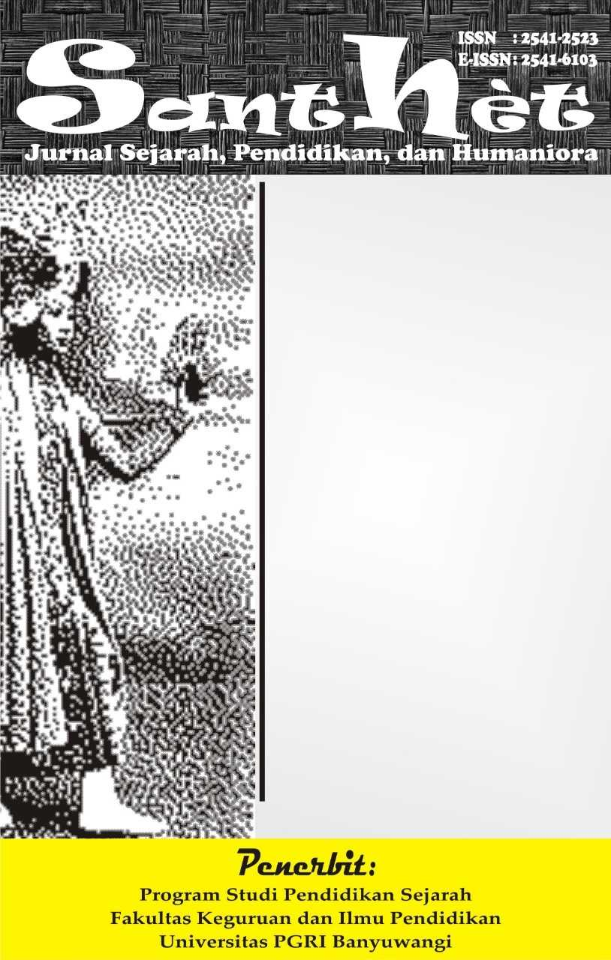The Effects of Gamification Method on Student Motivation and Learning Outcomes in Pancasila Course
Pengaruh Metode Gamifikasi terhadap Motivasi dan Hasil Belajar Mahasiswa pada Mata Kuliah Pancasila
DOI:
https://doi.org/10.36526/santhet.v9i6.5041Keywords:
gamification, learning motivation, learning outcomes, ARCSAbstract
Gamification-based learning methods have become an important innovation in improving student motivation and learning outcomes in the digital era. Pancasila courses, which are philosophical and historical in nature, are often considered less interesting when delivered using conventional methods. This study aims to analyze the effect of gamification methods on student motivation and learning outcomes in Pancasila courses using the ARCS model as an analytical framework. Using a quantitative approach with a quasi-experimental design, this study compared the experimental (gamification) and control (conventional) groups. The results showed that students who learned with gamification had higher motivation (mean = 4.3) than the control group (mean = 3.1). In addition, student learning outcomes in the gamification class (mean = 90.23) were higher than the control group (mean = 75.25). These findings confirm that gamification can increase engagement and effectiveness in Pancasila learning. Therefore, educational institutions are advised to adopt gamification as an innovative strategy in learning to improve student academic outcomes.
References
Amini, S. P., Paniza, M., & Sutabri, T. (2024). Analisis Pengaruh Penggunaan Virtual Reality terhadap Inovasi Pembelajaran Mahasiswa Generasi Z. Nusantara Journal of Multidisciplinary Science, 2(5), 1186–1193. https://jurnal.intekom.id/index.php/njms
Ananda, N. P., Rahmah, F. T., & Ramdhani, A. R. (2024). Using gamification in education: Strategies and impact. Hipkin Journal of Educational Research, 1(1), 1–12. http://ejournal-hipkin.or.id/index.php/hipkin-jer/
Andriani, R., & Rasto, R. (2019). Motivasi belajar sebagai determinan hasil belajar siswa. Jurnal Pendidikan Manajemen Perkantoran, 4(1), 80–86. https://doi.org/10.17509/jpm.v4i1.14958
Arbi, A. P. (2023). Investigating The Use of Project-Based Learning and Students’ Satisfaction in the Teaching of Descriptive Texts: A Case Study at Mts Al-Ihsan Krian. JURNAL HURRIAH: Jurnal Evaluasi Pendidikan Dan Penelitian, 4(2), 266–277. https://doi.org/10.56806/jh.v4i2.134
Ariani, D. (2020). Gamifikasi untuk Pembelajaran. Jurnal Pembelajaran Inovatif, 3(2), 144–149. https://doi.org/10.21009/jpi.032.09
Hakeu, F., Pakaya, I. I., & Tangkudung, M. (2023). Pemanfaatan Media Pembelajaran Berbasis Gamifikasi dalam Proses Pembelajaran di MIS Terpadu Al-Azhfar. Awwaliyah: Jurnal Pendidikan Guru Madrasah Ibtidaiyah, 6(2), 154–166. https://doi.org/10.58518/awwaliyah.v6i2.1930
Hidayat, W., Najafi, A. M., Ramlan, F., Ra’pak, F. T., Leo, M. A., & Baso, F. (2023). Efektivitas Penerapan Metode Gamification Berbasis Online Terhadap Pencapaian Kompetensi Mahasiswa Universitas Negeri Makassar. JUPITER, 1(1), 17–27. https://journal.diginus.id/index.php/JUPITER/index
Mardani, D., Suharto, N., & Suroyo, S. (2022). Hasil Belajar Bahasa Arab Berbasis Komputer dan Konvensional di Madrasah Tsanawiyah. Jurnal Basicedu, 6(3), 4470–4479. https://doi.org/10.31004/basicedu.v6i3.2804
Mujahida, & Rus’an. (2019). Analisis Perbandingan Teacher Centered dan Learner Centered. Scolae: Journal of Pedagogy, 2(2), 323–331. https://media.neliti.com/media/publications/322133-analisis-perbandingan-teacher-centered-d-52ad31e9.pdf





























